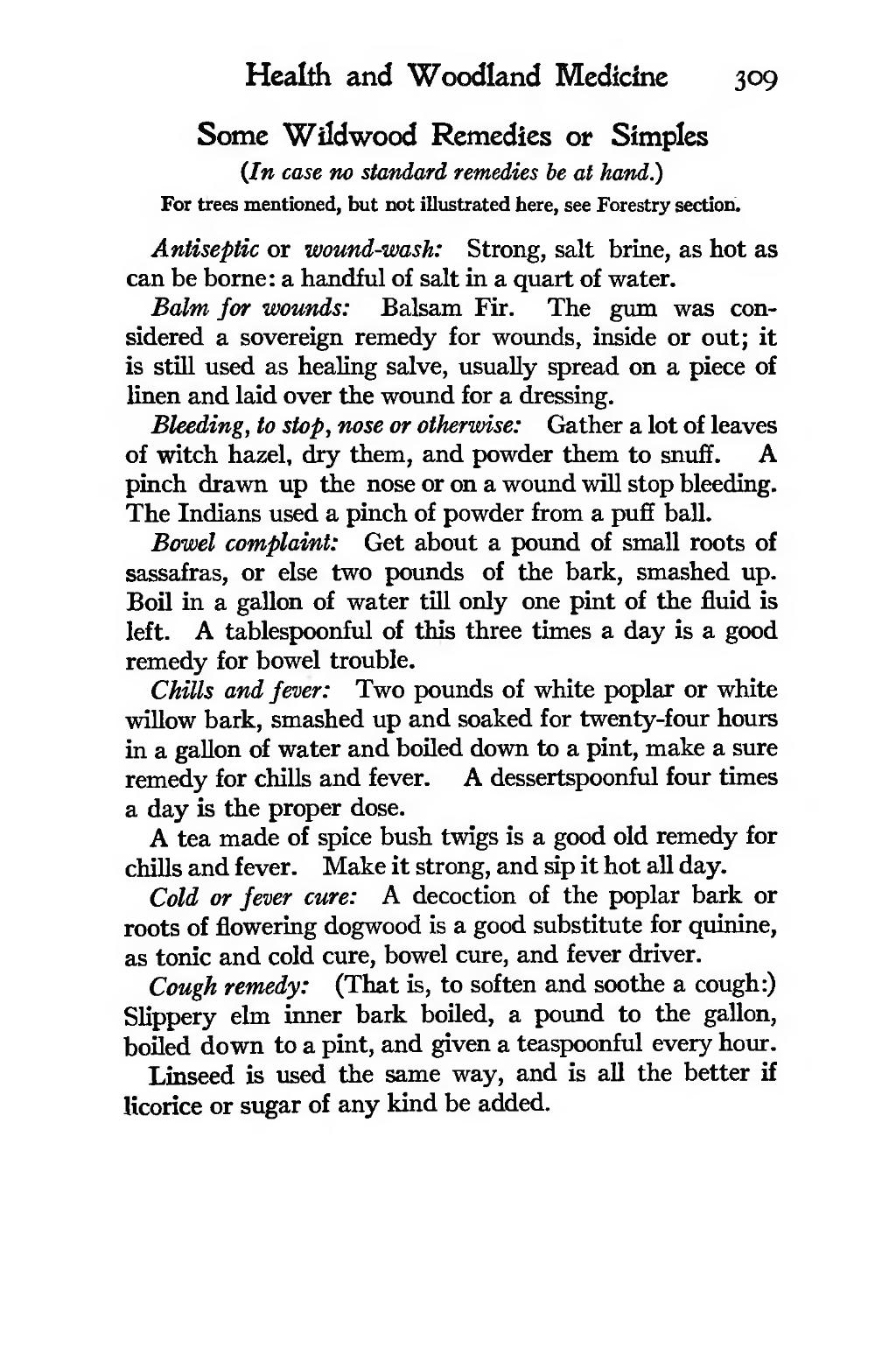Health and Woodland Medicine 309 Some Wildwood Remedies or Simples {In case no standard remedies be at hand.) For trees mentioned, but not illustrated here, see Forestry section. Antiseptic or wound-wash: Strong, salt brine, as hot as can be borne: a handful of salt in a quart of water. Balm for wounds: Balsam Fir. The gum was con- sidered a sovereign remedy for wounds, inside or out; it is still used as heaHng salve, usually spread on a piece of linen and laid over the wound for a dressing. Bleeding, to stop, nose or otherwise: Gather a lot of leaves of witch hazel, dry them, and powder them to snuff. A pinch drawn up the nose or on a wound will stop bleeding. The Indians used a pinch of powder from a puff ball. Bowel complaint: Get about a pound of small roots of sassafras, or else two pounds of the bark, smashed up. Boil in a gallon of water till only one pint of the fluid is left. A tablespoonful of this three times a day is a good remedy for bowel trouble. Chills and fever: Two pounds of white poplar or white willow bark, smashed up and soaked for twenty-four hours in a gallon of water and boiled down to a pint, make a sure remedy for chiUs and fever. A dessertspoonful four times a day is the proper dose. A tea made of spice bush twigs is a good old remedy for chills and fever. Make it strong, and sip it hot all day. Cold or f&oer cure: A decoction of the poplar bark or roots of flowering dogwood is a good substitute for quinine, as tonic and cold cure, bowel cure, and fever driver. Cough remedy: (That is, to soften and soothe a cough:) Slippery elm inner bark boiled, a pound to the gallon, boiled down to a pint, and given a teaspoonful every hour. Linseed is used the same way, and is all the better if licorice or sugar of any kind be added.
Stránka:book 1913.djvu/331
Z thewoodcraft.org
Tato stránka nebyla zkontrolována
